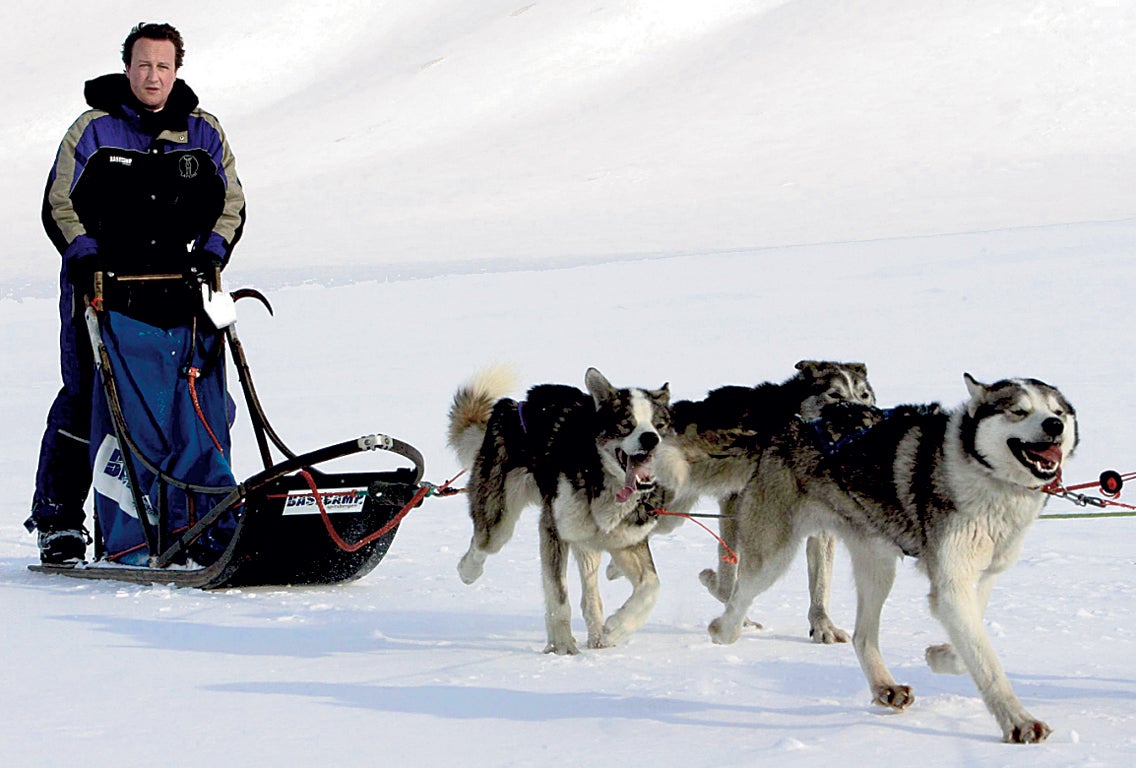UK accused of ignoring crisis in the Arctic
WWF experts warn Britain is lagging behind Europe in dealing with 'new world' challenges

Britain needs to pay far more attention to the Arctic and the "new world" of the Far North, a group of experts warned yesterday.
Government ministers are showing no interest in the region David Cameron chose to define his image – on his celebrated sled-and-husky trip after he became Conservative leader – even though it is now one of the most rapidly changing areas of the world. It presents many opportunities but also looming environmental and diplomatic difficulties, the conference in London, organised by the World Wide Fund for Nature (WWF-UK), was told.
Valuable oil and mineral extraction, new shipping routes, new fishing grounds, border disputes, the rights of native peoples and environmental dangers are all on the horizon in the region surrounding the North Pole, as the sea ice of the Arctic Ocean melts with climate change, and the area is opened up. Yet Britain is lagging far behind other countries in engaging with the issues, a series of experts told the meeting.
Germany's Chancellor Angela Merkel held an Arctic summit earlier this year, and France has appointed a special representative for the polar regions, the meeting heard, yet Britain leaves its policy matters to the Polar Regions Unit of the Foreign Office – which deals with Antarctica as well and the Antarctic Treaty governing the southern continent – and has a total staff of seven officials.
The conference, entitled "On Thin Ice – Principles for the UK in a Changing Arctic", put forward a set of principles, drafted by WWF-UK and other environmental groups, to which Britain should adhere in dealing with Arctic issues. They included the suggestion that Britain should back a moratorium on oil and gas exploration in the Far North, as this is "incompatible with the UK's commitment to reduce its dependence on fossil fuels and limit the damaging effects of climate change". This is likely to be too late as a British company, Cairn Energy, is leading the way in offshore oil prospecting in the Arctic and has been drilling exploratory wells this summer in the seas off Greenland.
Other suggested principles included the control of shipping activities, the promotion of sustainable fisheries, respect for the rights of the indigenous Inuit peoples and support for the conservation of migratory wildlife species.
Britain does have an articulated policy for the Far North, laid down in a short Foreign Office document entitled "The UK's Engagement in the Arctic", which sets out what key British interests are – they include "the potential of the Arctic to strengthen energy security and the sustainable use and safe extraction of resources".
But speakers charged that the Government was really interested in resources such as oil, to the exclusion of other matters set out in the document, such as the protection of the Arctic ecosystem, or the management of new shipping routes or fishing grounds.
"There has been little engagement by ministers on the other issues," said Shane Tomlinson, of the environmental think-tank E3G. "The UK could play a very much larger role in shaping the European Arctic agenda than it is doing at present."
Subscribe to Independent Premium to bookmark this article
Want to bookmark your favourite articles and stories to read or reference later? Start your Independent Premium subscription today.

Join our commenting forum
Join thought-provoking conversations, follow other Independent readers and see their replies